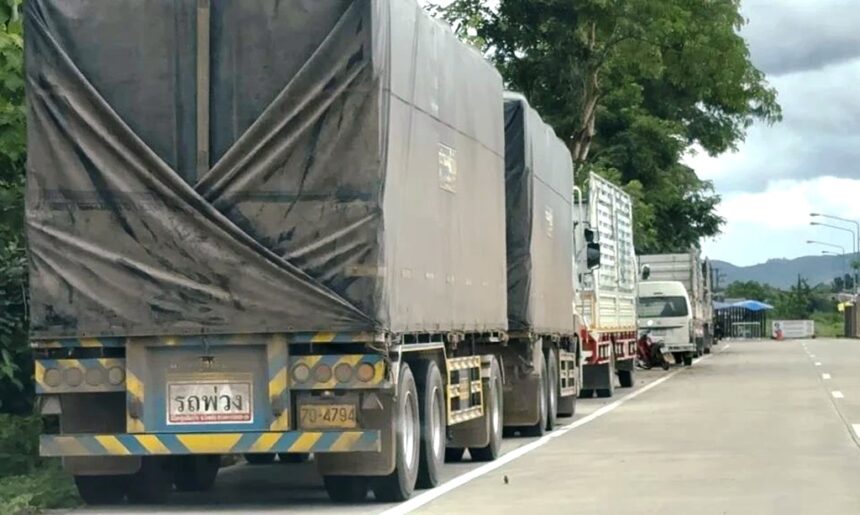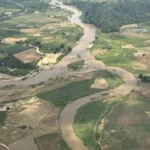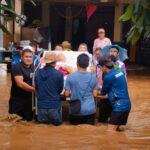CHIANG RAI – Thai-Myanmar trade via Mae Sai and Tachileik has recently run into trouble, with widespread reports suggesting that Myanmar’s central government is planning a customs reset and new tariffs. Imports from Thailand are now suspended, except for essential goods.
While individuals crossing the border may still carry small personal items, bulk transport across in vehicles is banned. Crossing goods into Myanmar’s interior is also strictly restricted.
Sources at the Thai-Myanmar border in Mae Sai, Chiang Rai, report that from 1 September 2025, there has been a massive drop in Thai exports through the Mae Sai customs checkpoint to Tachileik in Eastern Shan State, Myanmar.
Myanmar’s authorities have now stopped almost all imports from abroad, except for basic necessities. This has led to a clear slowdown in cargo movement from Thailand to Tachileik through the Thai-Myanmar Friendship Bridge across the Sai River. Fewer goods are being transported.
The Tachileik customs checkpoint still lets in a limited amount of daily consumer products like food and drinks, but only in restricted quantities. Other products that used to move freely into Tachileik have been blocked altogether.
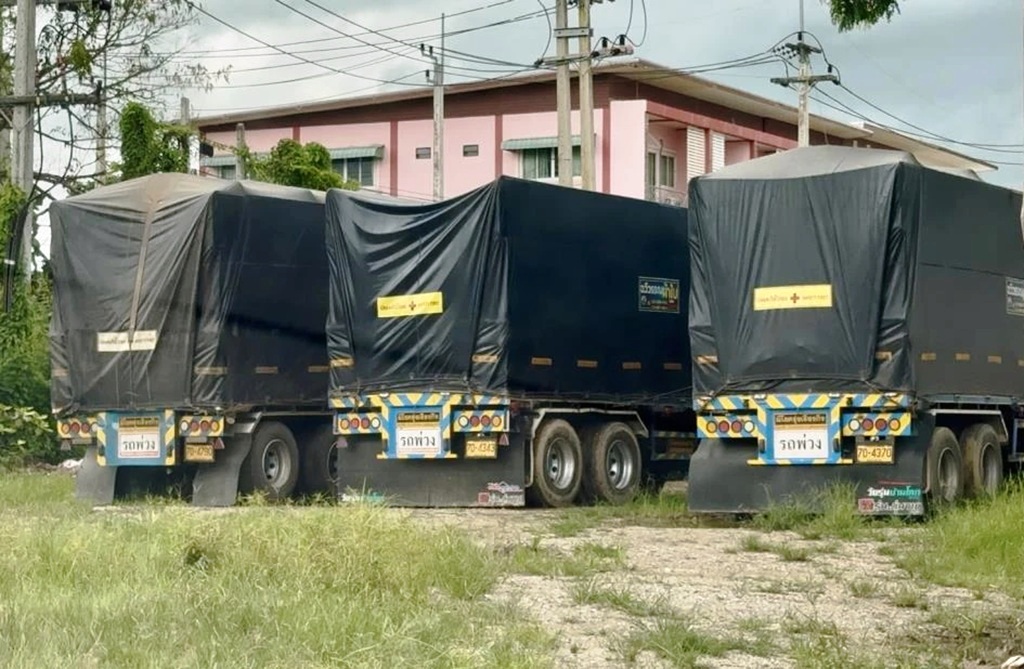
Bulk Goods into Myanmar Halted
Items affected include drinks, canned food, meat, instant noodles, MSG, all types of fresh fruit, household plastics, medicines, soap, toothpaste, electrical appliances, computer equipment, and mobile phone parts.
At the first Thai-Myanmar Friendship Bridge across the Sai River, which is mainly for people crossing, Myanmar citizens can still take home small personal purchases. However, border controls stay strict, and carrying goods back in bulk by vehicle is still banned.
Myanmar’s military government has ordered all border regions, including Tachileik, to stop almost all imports starting from the morning of 26 August 2025. Controls have also tightened on goods passing through the Mak Yang checkpoint that links Tachileik with other towns in Eastern Shan, like Kyaing Tong, Ko, and Ta Due.
Clear orders at the checkpoint state that “foreign goods must not enter the interior under any circumstances”.
A border officer said the current ban could be part of a wider review and adjustment of import tax policies across the country. There have been reports that most tax revenue ends up with local groups rather than Myanmar’s central government. There is no word yet on when the ban might end.
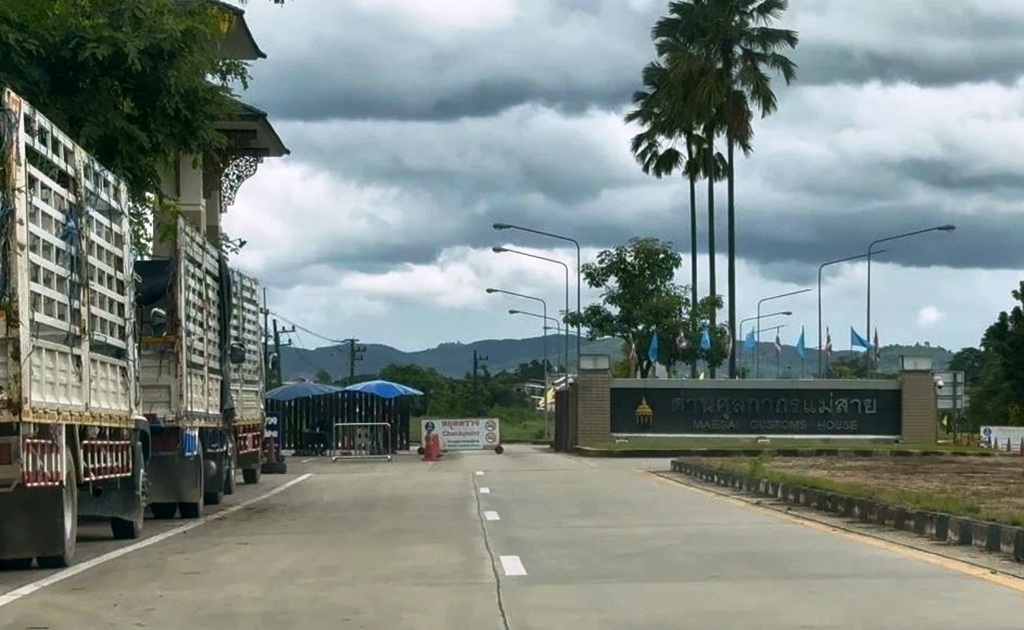
Trade Still Flowing into Thailand
Previously, border trade between Mae Sai and Tachileik had high value. In October 2024, exports were valued at 1,379,308,821.45 baht, mainly fuel, drinks, cement, and instant noodles. In November 2024, exports reached 1,517,607,987 baht, with the main items being fuel, drinks, cement, and spirits.
December 2024 saw exports of 1,658,583,802.40 baht, led by fuel, drinks, and cement. In January 2025, the figure was 1,640,759,907.83 baht, mainly fuel, cement, spirits, drinks, and steel.
In February 2025, exports totalled 1,349,951,178.8 baht, with cement, drinks, and spirits among the top products. March 2025 saw 1,350,327,552.29 baht in exports, focusing on drinks, cement, and spirits. By April 2025, the export figure dropped to 972,917,054.02 baht, led again by drinks, cement, spirits, and steel.
In May 2025, it was 884,943,128 baht, with drinks, cement, lubricant oil, steel, and spirits as the main items. June 2025 exports hit 697,527,520.52 baht, and in July 2025, they moved up slightly to 739,995,707.38 baht, often led by drinks, spirits, cement, and palm oil.
Imports from Myanmar have mainly been farm produce like maize and fresh oranges, as well as minerals, scrap aluminum, and scrap steel, worth between 100 and 300 million baht a month.
Trade remained lively, even after Thailand stopped sending fuel, electricity, and internet service to Tachileik from 5 February 2025 under measures to tackle scam gangs and call centre operations. That lasted until this latest import restriction from Myanmar.
For businesses and locals, these changes have brought big challenges. Many are waiting to see what happens next, hoping for clearer policies or an easing of restrictions.




